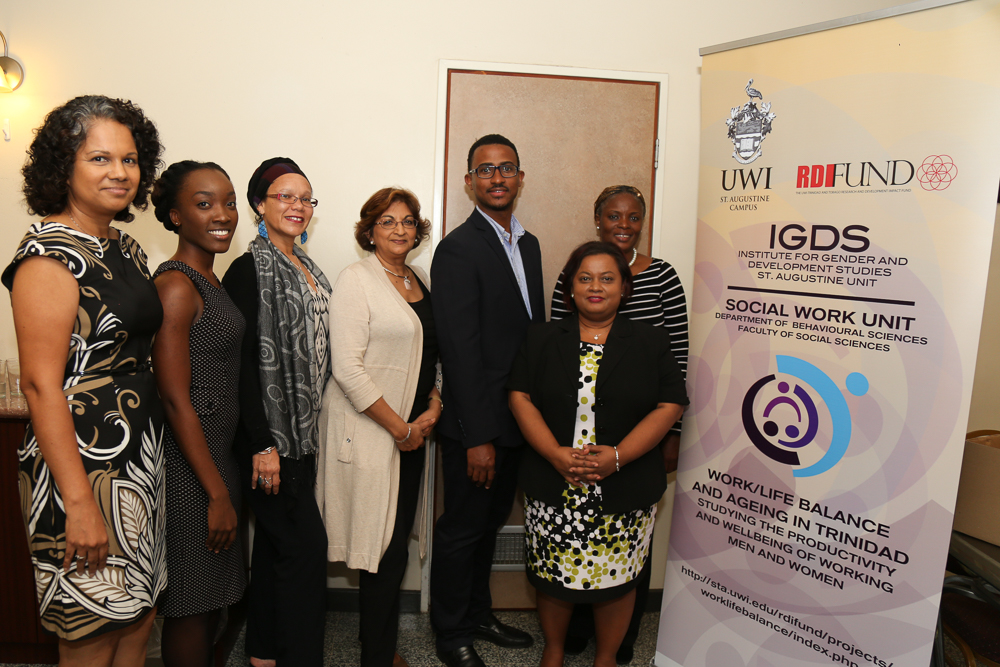
The world’s population is ageing rapidly, causing development challenges for nations across the globe.
For many of the world’s most developed nations, the shift to an ageing population took place over a long period of time, 100 years in some cases. But in countries such as Trinidad and Tobago, a small twin-island state in the Caribbean, this shift is occurring in a quarter of that time or less.
This rapid demographic change is increasing pressure on social security in Trinidad and Tobago, particularly around pensions and health benefits.
The impact on Trinidad and Tobago’s economy
With the non-working population outnumbering those in work, fewer people are contributing to the economy in terms of tax and national insurance.
By 2030 the national insurance funds will be completely depleted, the National Insurance Board of Trinidad and Tobago said last month. It knows reform is needed, and is proposing to increase the retirement age from 60 to 65, as many other countries experiencing this demographic trend have done.
As people work longer, they will contribute more to national insurance, while also starting to receive their pension at a later date. Yet it must be considered that as people work longer, families will have less time to spend with each other and individuals will have less time to ensure they look after themselves, which risks decreasing quality of life.
Imbalances between work and life
While the economic costs of an ageing population typically get the most attention, the impact on family structures and how people balance their work and lives must also be considered.
As people live longer in Trinidad and Tobago, there is an increased likelihood of developing non-communicable diseases. When this happens, the caring responsibility falls on their relatives, who will more than likely be of working age. Having to cope with one of your loved ones being ill and having to take time out of work can cause financial and emotional strain.
Many older people experience much of their retirement in good health, and these people are less and less satisfied occupying the traditional role of full-time babysitters for their grandchildren. They now use their retirement to focus on themselves by engaging in travelling and other hobbies. Similarly, there are a number of older people who re-enter the job market after retirement in contractual employment, which also limits their capacity to support their families.
Although the effects of Trinidad and Tobago’s ageing population are apparent, there is little awareness among the general public, and it is not a major public policy focus.
The Division of Ageing exists under the Ministry of Social Development and Family Services. However, ageing is not part of national discussions. This is a change society has to manage individually with an ideological shift around negative perceptions associated with ageing and institutionally through public policy regarding older people. We need this to adequately address the problems faced by Trinidad and Tobago, and the wider Caribbean region.
How are we working to address Trinidad and Tobago’s ageing population?
Evidence-based research is required to fully understand Trinidad and Tobago’s ageing population and deal with its nuanced challenges.
At the University of the West Indies, our Institute for Gender and Development Studies and the Social Work Unit has embarked on a three-year project titled Work/Life Balance and Ageing in Trinidad: Studying the Productivity and Wellbeing of Working Men and Women, which is funded by the university’s Research and Development Impact Fund.
This project, led by Professor Patricia Mohammed and Dr Cheryl-Ann Boodram, considers whether work/life balance is either sustained or aggravated by the country’s ageing population. It asks if people in work depend on the retirees and extended family for childcare? And are they additionally burdened with caring for ageing people in their lives?
Findings so far suggest Trinidad and Tobago does not have one particular family structure that is typical of the culture – there are indeed many family structures. This is significant as existing research in this area has been on countries in the global north where family structures are typically nuclear – focused on two parents and their children. This research presents the alternative perspective from a country in the global south.
People who have caregiving responsibilities, whether for children or older relatives, tend to function in a network of family, friends and neighbours. They have traditionally found unique ways to manage in close-knit communities without relying on paid help. This however is now being threatened by the changes occurring in the population demographic.
We want to this project to generate interest in the challenges of Trinidad and Tobago’s ageing population to encourage the relevant stakeholders to start addressing the policy gaps in work, family and ageing.
Find out more on the University of the West Indies website.
